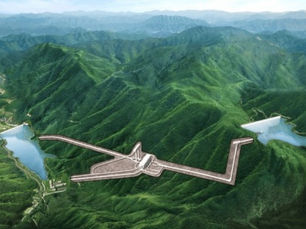Vattenfall & Wieland Group Lead Industrial Decarbonization with Solar PPA
- Energy Box

- Apr 10, 2024
- 2 min read
Vattenfall, a prominent energy supplier, and the Wieland Group, a leading provider of copper and copper alloy semi-finished products based in Ulm, Germany, are spearheading efforts to decarbonize industrial production. Through a new ten-year power purchase agreement (PPA), both parties aim to secure investments, guarantee prices, and diversify risks. Starting in 2025, a solar park in Nauen, Brandenburg, Germany, will supply fossil-free renewable energy for metalworking processes, boasting a capacity of 46MW. This collaborative effort between Vattenfall and Wieland lays the groundwork for a more climate-neutral energy transition, particularly in e-mobility, power and data transmission, and heating solutions.
Christine zu Putlitz, responsible for renewable energy marketing at Vattenfall, highlights the growing demand for fossil-free energy partnerships, citing their collaboration with Wieland as a prime example of practical decarbonization across entire value chains, crucial for facilitating the energy transition.
Dr. Erwin Mayr, CEO of the Wieland Group, underscores their commitment to emission reduction and sustainability, emphasizing their aim to utilize 100% renewable energy for electrified production facilities. The partnership with Vattenfall marks a significant milestone in their journey towards climate protection and sustainability goals.
The PPA entails the supply of electricity from Vattenfall’s solar park in Brandenburg to Wieland over a decade. Located in Nauen, approximately 40 kilometers west of Berlin, the solar park is slated for completion and grid connection by 2025. It will provide around 46GWH of electricity annually for metalworking processes, equivalent to powering over ten thousand households. This translates to roughly 460GW hours of electricity supplied by Vattenfall to Wieland over the agreement’s duration, saving approximately 29,000 tons of carbon dioxide emissions annually.
As a result of this collaboration, Wieland-Werke AG will satisfy about ten percent of its energy needs in Germany with renewable energy, marking progress towards achieving “net zero emissions” by 2045. Additionally, Wieland is constructing a solar park in Erbach, near its Ulm headquarters, expected to be one of southern Germany’s largest. This initiative will save around 18,000 tons of carbon dioxide emissions annually.
Following Germany’s decision against subsidized industrial electricity prices, industry experts anticipate a surge in electricity partnerships between producers and industrial firms in the coming years. Vattenfall’s robust project pipeline for future PPAs includes plans for up to 28 new solar parks with a capacity of around 2 GW by the end of 2026, along with investments in over 1.6GW of offshore capacity. A study by the German Energy Agency (Dena) forecasts PPAs to cover a quarter of Germany’s total electricity demand by 2030, with the potential for further growth spurred by the EU energy market reform. Simplified state credit guarantees for private electricity supply contracts, as proposed in the reform, could further bolster the PPA market.















Comments